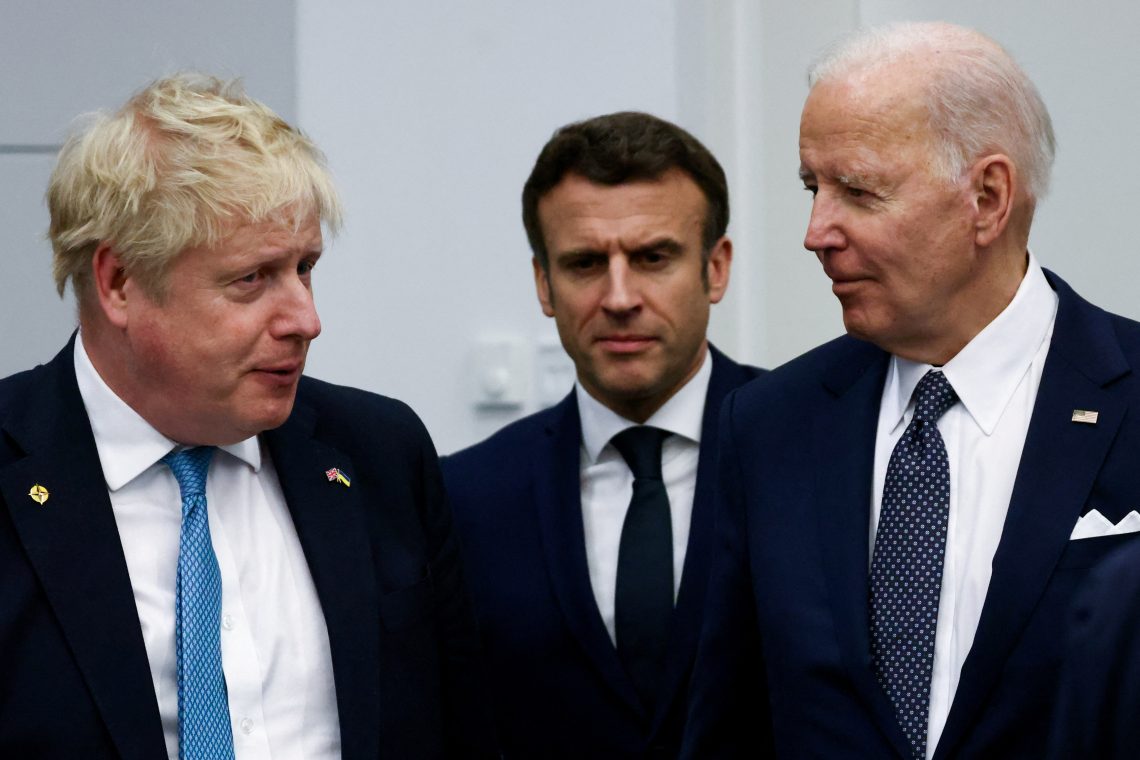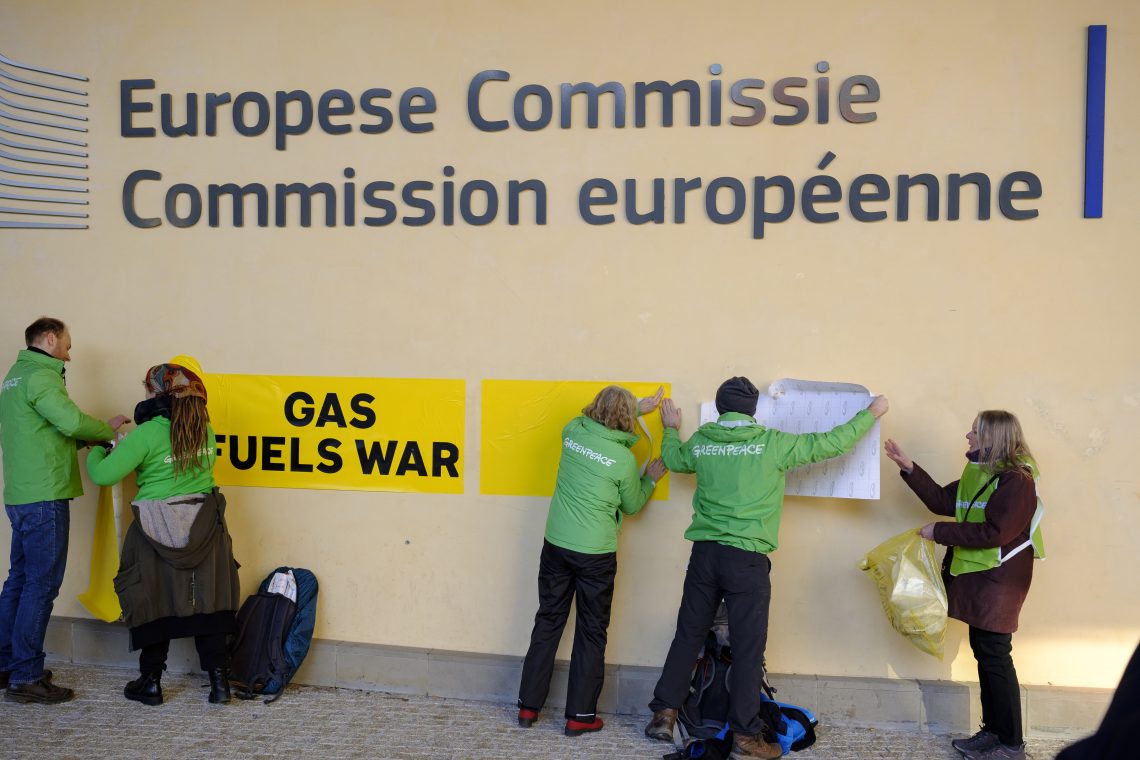Europe could be the biggest strain on transatlantic relations
EU-U.S. relations will likely face internal political tension rather than external geopolitical pressures, potentially reshaping transatlantic ties.

In a nutshell
- EU-U.S. relations may be influenced more by internal politics than external threats
- Europe has shown resilience and cohesion in the face of geopolitical upheavals
- The 2024 U.S. election could be a potential turning point in transatlantic relations
Relations between the United States and the European Union are bound to evolve in the years ahead. Whether they further align or are stressed by greater tensions will depend on different political outcomes that could emerge in the future, rather than on external pressures caused by antagonism from Russia and China.
Unexpected resilience
In the last few years, European solidarity has been most significantly tested since the Balkan Wars of the 1990s. Europe has weathered the current geopolitical upheavals with impressive cohesion. In addition, despite the high energy prices, inflation, continued discord over migration and the uncertainties of the war in Ukraine, most European governments have proved remarkably resilient.
Support for the Ukraine war effort and Ukrainian refugees remains strong. European cooperation to replace Russian energy supplies has been a case study in effective transnational collaboration.
All these developments suggest a promising future for European cohesion in the face of future adversity. There also appears to be strong alignment between Europeans and the U.S. on crucial issues like NATO enlargement and support for Ukraine.
Transatlantic political trends
Yet, transatlantic relations are far from static. External concerns, such as Russia and China, could well be lesser factors in driving transatlantic tensions. Regardless of how the war between Russia and Ukraine progresses, any reconciliation between Moscow and Western powers is most likely an unrealistic near-term prospect.
One sticking point in transatlantic relations – burden sharing – is likely to abate as Europeans as a whole increase investments in defense, while the scope of the threat of conventional forces is reduced because of attrition during the Ukraine war.

Meanwhile, though there is no consensus among Europeans on how to deal with the challenges posed by China, there is a broadly shared concern in the West over the destabilizing global actions of the Beijing regime.
In short, geopolitics is less likely to be the greatest cause of tension in transatlantic ties.
Political trends within the transatlantic community are much more likely to influence how coherent European and American relations are in the decade ahead. Whether the future U.S. president after 2024 is a Republican or Democrat is often suggested as a potential turning point in transatlantic relations. This is a prediction heavily weighted by political assessments that the U.S. Republican Party is increasingly isolationist or will significantly disengage from Europe to focus on the Indo-Pacific. Though that is an oft-described interpretation of former President Donald Trump’s influence on the party, it is at odds with the facts.
Over the course of his presidency, Mr. Trump did not downgrade U.S. commitments to NATO or European security. Indeed, he upgraded military cooperation and aid to Ukraine over the course of his term as president.
Former President Trump’s influence is also overstated. NATO and the stability of Europe have consistently remained a vital interest of the U.S. in both Republican and Democratic administrations since the end of the Cold War. That is unlikely to change regardless of the outcome of the 2024 presidential election.
There are, however, many political developments that could affect transatlantic relations.
There is an increase of center-right political influence in Northern, Central and Southern Europe. This was most recently demonstrated in Finnish national parliamentary elections. Those political forces are, for the most part, among the most pro-America, anti-China and anti-Russia governments in the region. This could foster closer bilateral bonds rather than more engagement between Brussels and Washington.
Without question, in the U.S. there is much bipartisan interest and focus on collaboration on the Nordic and Baltic states (including in the Arctic region), the Balkans, Central Europe and Southern Europe in recent years. Recent bipartisan support for legislation on an American Black Sea strategy is one example.
Shoring up NATO’s eastern and southern flank is the obvious motive for this interest, but there are other reasons. There is more U.S. political interest and support, such as high-level visits to countries like Bulgaria, Romania and Poland. There also has been American support from Republican and Democratic administrations for the Three Seas Initiative, which looks to increase investment in North-South infrastructure – a challenge that the EU has failed to effectively address for 30 years.
More by James Jay Carafano
India tilts West as Russian ties cool
The implications of America’s anti-China tech moves
In addition, the European center-right could well emerge as a majority in the next European parliamentary elections, deepening the political divide in Brussels between the EU institutions and the priorities of Southern and Central Europe.
If there is a conservative U.S. president in 2025, this could widen the gap between what Brussels sees as the priority for the transatlantic community and what a significant number of European states want.
A conservative American administration would also put more effort into bilateral ties with center-right Europe than with the EU.
There are several core EU issues that could aggravate these tensions. Challenges in addressing energy security and climate change will be one of them. The assumption that Europe and a Democratic president would see eye to eye on climate policy has already been proven false. Europeans, for instance, are deeply resentful of the unfair treatment they received over green technologies in the recently passed U.S. Inflation Reduction Act under President Joe Biden.
A conservative U.S. president, who would almost assuredly be interested in increased investment in oil, gas and nuclear, would only compound differences in energy policies. A Republican leader would align with European nations more interested in energy security and have far less interest in Brussels’ climate agenda.
A conservative administration would also have much more sympathy for European nations interested in dealing with illegal migration issues. The U.S. is more likely to be forward-leaning in securing a working relationship with Turkey and promoting outreach to the Caucasus and Central Asia. That enthusiasm will find favor with some but not all Europeans.
America will also likely have more in common with Southern European states looking to focus on the Eastern Mediterranean and North Africa, an area where the EU has played a minor role. Another source of tension could be between European powers continuing to pursue strategic autonomy for Europe, and countries who are more concerned about strengthening security ties with the U.S.
Scenarios
The most likely scenario is increased tension among Europeans over EU matters. European center-right conservatives have demonstrated increasingly consistent appeal to voters. If they also continue to deliver results on bread-and-butter issues, their political weight will also continue to influence the debate over the future of the European project.
In short, we are likely to see increasingly distinct visions of transatlantic unity, influenced more by national politics than geopolitics. In addition, the election of a conservative president in the U.S. would likely exacerbate those tensions, not by pressing for disengagement but by having greater preferences for selective bilateral engagement.




